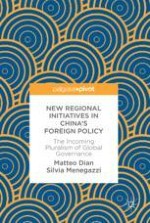2018 | OriginalPaper | Buchkapitel
5. The Regional Comprehensive Economic Partnership (RCEP)
verfasst von : Matteo Dian, Silvia Menegazzi
Erschienen in: New Regional Initiatives in China’s Foreign Policy
Aktivieren Sie unsere intelligente Suche, um passende Fachinhalte oder Patente zu finden.
Wählen Sie Textabschnitte aus um mit Künstlicher Intelligenz passenden Patente zu finden. powered by
Markieren Sie Textabschnitte, um KI-gestützt weitere passende Inhalte zu finden. powered by
